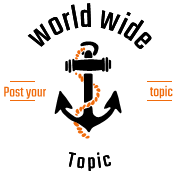Load orchestration is one of the most effective ways to control your electrical load. Imagine a home with a plugged-in electrical overloads heater, a switched-on hairdryer, switched on outdoor lights, switched on TVs and many other switched-on appliances. In a few minutes, you will learn that your TV stopped functioning and other appliances turned off. The problem is because you overloaded the circuit.
Outdoor lights used most of the power needed by the fridge or vice versa. It is important to understand that if your house has a properly installed electrical overloads system, an overload will not burn your house down. A protective device at your main panel will shut off the power before any damage occurs.
The device will be a circuit breaker that will trip open. If you have an older system, the fuse will burn out. However, finding a solution to this problem can be a hassle. Read this article as we tell you how to sort out the circuits in your system and avoid overloads. You will not only avoid blackouts but also avoid overloading when you expand your system.
A circuit with an overload
When an electrical circuit has too many appliances turned on at the same time, the power usage will exceed the limit of the circuit. Fuses or circuit breakers will automatically turn off the circuit at the main switch panel. If you have load controllers, they will shut down appliances that are not set as priority items. This means that a controller will allow essential appliances to run and turn off other appliances to prevent the whole circuit from being shut down.
Circuit logic
The main panel is the nerve center of your system. It is usually a gray metal box that sits in some obscure spot in your utility room, the basement or garage. Three large wires from the utility company usually feed the main panel. While you might notice the wires outside if they are overhead, they will be safely encased in conduit inside for safety. This is because they contain virtually unlimited power.
Fuses or circuit breakers in your main panel will function to limit the power to a level that your wiring system can handle and funnel the power through branch circuits. If you turn on a lot of appliances, the electricity demand on your circuit will exceed the limits of the fuse or circuit breaker. The circuit breaker will snap open and shut down the circuit, serving you notice that you have overloaded the system or there is some other problem with the circuit.
Correcting an overload
Load orchestration and using controllers is an effective way to correct an overload. The logic is simple – you just shift some plugged-in devices from the overloaded circuit to a different general-purpose circuit. Once you are sure that you have removed the overload, flip the circuit breaker back on. If you have a burned fuse, you should replace it. Doing this manually is hectic, time-consuming and inconvenient. Using controllers is the best solution to this problem.




